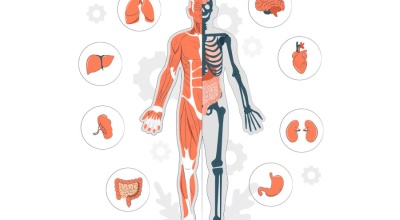The fastest-growing drug problem in the United States isn’t cocaine, heroin, or methamphetamines. It is prescription drugs, and it is profoundly affecting the lives of teenagers.
Research shows that when parents talk openly about drugs and drinking, children have better self-control and develop more negative perceptions of these risky behaviors.
How To Explain to Your Teen
Why You Don’t Want Him
Drinking or Using Drugs
Don’t want your teen drinking or using drugs? Tell him how you feel and what you expect from him. Be warm but firm. For example, you might say:
I'm not trying to ruin your fun. I love you and I want you to stay healthy. The best way to do that is to stay completely away from drugs and alcohol. I need you to promise that you will.
I realize there's a lot of temptation out there. I also know you're a really smart, strong person. That's why I expect you to stay clean — no matter what your friends are doing. Agreed?
There's a lot of new science about teens, drugs and alcohol. It scares me to know how easily you could damage your brain www.drugfree.org/teenbrain or get addicted. I want your word that you'll steer clear of all that, and keep me in the loop on the kids you hang out with, too.
In addition, educating adolescents and their parents about the risks of drug misuse and abuse can play a role in combating the problem. The National Institute on Drug Abuse (NIDA), a component of the National Institutes of Health (NIH), created the website NIDA for Teens: The Science Behind Drug Abuse to educate teens, their parents, and teachers on the science behind prescription drug misuse and abuse. Developed with the help of teens to ensure relevance, NIDA scientists created a site that delivers science-based facts about how drugs affect the brain and body so that young people will be armed with better information to make healthy decisions.
MY GENERATION RX
“My Generation Rx” includes resources designed to educate teens about the importance of using medications safely, as well as teaching teens key skills to turn down invitations to misuse and positive alternatives to cope with the demands of life. These materials could be delivered in formal classroom settings, after-school programming, youth organization meetings, or any other venue with teen audiences.
Rise in Prescription Drug Misuse and Abuse Impacting Teens
According to National Institute on Drug Abuse (NIDA) DrugFacts, prescription drug misuse and abuse is when someone takes a medication inappropriately (for example, without a prescription). Sadly, prescription drug misuse and abuse among young people is not an insignificant problem. According to National Survey on Drug Use and Health (NSDUH) data on youth and young adults, more than 5,700 youth in 2014 reported using prescription pain relievers without a doctor’s guidance for the first time.
A common misperception is that prescription drugs are safer or less harmful to one’s body than other kinds of drugs. However, there is a range of short- and long-term health consequences for each type of prescription drug used inappropriately:
- Stimulants have side effects in common with cocaine, and may include paranoia, dangerously high body temperatures, and an irregular heartbeat, especially if stimulants are taken in large doses or in ways other than swallowing a pill.
- Opioids, which act on the same parts of the brain as heroin, can cause drowsiness, nausea, constipation, and, depending on the amount taken, slowed breathing.
- Depressants can cause slurred speech, shallow breathing, fatigue, disorientation, lack of coordination, and seizures upon withdrawal from chronic use.
These impacts can be particularly harmful to a developing adolescent brain and body. Our brains continue to develop until we reach our early- to mid-twenties. During adolescence, the pre-frontal cortex further develops to enable us to set priorities, formulate strategies, allocate attention, and control impulses. The outer mantle of the brain also experiences a burst of development, helping us to become more sophisticated at processing abstract information and understanding rules, laws, and codes of social conduct. Drug use impacts perception—a skill adolescent brains are actively trying to cultivate—and can fracture developing neural pathways. Additionally, as our brains are becoming hardwired during adolescence, the pathways being reinforced are the ones that stick. If those pathways include addiction, the impact may lead to life-long challenges.
As with any type of mind-altering drug, prescription drug misuse and abuse can affect judgment and inhibition, putting adolescents at heightened risk for HIV and other sexually transmitted infections, misusing other kinds of drugs, and engaging in additional risky behaviors.
NIAAA recently launched the NIAAA Alcohol Treatment Navigator. This online tool helps you find the right treatment for you — and near you. It guides you through a step-by-step process to finding a highly qualified professional treatment provider. Learn more at alcoholtreatment.niaaa.nih.gov
Harm Reduction, Injecting Drug Use 101, Guide to Cleaning Used Syringes
Sharing needles, syringes, or other equipment (works) to inject drugs puts people at high risk for getting or transmitting HIV and other infections. People who inject drugs account for about 1 in 10 HIV diagnoses in the United States. The best way to reduce the risk of getting or transmitting HIV through injection drug use is to stop injecting drugs. Call 1-800-662-HELP (4357) to find a treatment center. If you continue injecting drugs, never share needles or works.
If you continue injecting drugs, never share needles or works. Many communities have syringe services programs (SSPs) where you can get free sterile needles and syringes and safely dispose of used ones. They can also refer you to substance use disorder treatment and help you get tested for HIV and hepatitis. Contact your local health department or North American Syringe Exchange Network (NASEN) to find an SSP. Also, some pharmacies may sell needles without a prescription.
Clean Syringe Access Database
US Syringe Exchange Program Database
NASEN is dedicated to the creation, expansion and continued existence of syringe exchange programs as a proven method of stopping the transmission of blood-borne pathogens in the injecting drug using community.
The following is a list by state/province/territory of those syringe exchange programs in North America that have given us permission to make their contact information public. This is not a definitive list of all syringe exchange programs.
Exchange Program
A Disinfected Syringe is NOT a Sterile Syringe If it is done carefully and thoroughly, disinfection can reduce the amount of live HIV, HBV, and HCV in a syringe.
However, even the best disinfection procedure cannot guarantee that all viruses have been killed. The plastic syringes usually used by IDUs are designed for one-time use. They are not designed to be cleaned and used again.
Disinfected syringes do NOT meet the standards that are applied in all other settings in which people use syringes (such as hospitals, other health care settings, and insulin injections by people with diabetes). In these settings, people must use a new, sterile syringe for every injection.
For these reasons, a disinfected syringe is NOT as safe as a new, sterile syringe. Recommendations about disinfecting syringes with bleach or others agents apply ONLY to situations in which IDUs do not have sterile syringes.
Substance abuse treatment and access to sterile syringes through pharmacies, physician prescription, and syringe exchange programs are essential components of HIV prevention efforts among injection drug users.
Other things you can do to lower your risk of getting or transmitting HIV, if you continue to inject drugs, include:
- Cleaning used needles with bleach. This may reduce the risk of HIV but doesn’t eliminate it.
- Using sterile water to fix drugs.
- Cleaning your skin with a new alcohol swab before you inject.
- Being careful not to get someone else’s blood on your hands or your needle or works.
- Disposing of needles safely after one use. Use a sharps container, or keep used needles away from other people.
- Getting tested for HIV at least once a year.
- Asking your doctor about taking daily medicine to prevent HIV (called pre-exposure prophylaxis or PrEP).
- Using a condom the right way every time you have anal or vaginal sex. Learn the right way to use a male condom.
Learn more about how to protect yourself, and get information tailored to meet your needs from CDC’s HIV Risk Reduction Tool
Getting Help Resources from National Institute on Alcohol Abuse and Alcoholism (NIAAA)
Finding and Getting Help
Treatment for Alcohol Problems: Finding and Getting Help
This guide from NIAAA is written for individuals, and their family and friends, who are looking for options to address alcohol problems. It is intended as a resource to understand what treatment choices are available and what to consider when selecting among them.
Rethinking Drinking: Alcohol and Your Health
For anyone who drinks, this site and booklet from NIAAA offers valuable, research-based information to help people to take a look at their drinking habits and how they may affect their health, and find ways to make a change.
Professional help
Your doctor. Primary care and mental health practitioners can provide effective alcoholism treatment by combining new medications with brief counseling visits. To aid clinicians, NIAAA has developed two guides: Helping Patients Who Drink Too Much, and for younger patients, Alcohol Screening and Brief Interventions for Youth: A Practitioner’s Guide. Both are available at www.niaaa.nih.gov/publications/clinical-guides-and-manuals.
Specialists in alcohol use disorders. For specialty addiction treatment options, contact your doctor, health insurance plan, local health department, or employee assistance program. Other resources include:
Medical and non-medical addiction specialists
American Academy of Addiction Psychiatry
www.aaap.org
401–524–3076
American Psychological Association
www.apa.org
1–800–964–2000 (ask for your State’s referral number to find psychologists with addiction specialties)
American Society of Addiction Medicine
www.asam.org
301–656–3920 (ask for the phone number of your State’s chapter)
NAADAC Substance Abuse Professionals
www.naadac.org
1–800–548–0497
National Association of Social Workers
www.helpstartshere.org (search for social workers with addiction specialties)
Treatment facilities
Substance Abuse Treatment Facility Locator
findtreatment.samhsa.gov
1–800–662–HELP (1-800-662-4357)
Mutual-support groups
Alcoholics Anonymous (AA)
www.aa.org
212–870–3400 or check your local phone directory under “Alcoholism”
Moderation Management
www.moderation.org
212–871–0974
Secular Organizations for Sobriety
www.sossobriety.org
323–666–4295
SMART Recovery
www.smartrecovery.org
440–951–5357
Women for Sobriety
www.womenforsobriety.org
215–536–8026
Groups for family and friends
Al-Anon Family Groups
al-anon.org
1–888–425–2666 for meetings
Adult Children of Alcoholics
adultchildren.org
310–534–1815
Information resources
National Institute on Alcohol Abuse and Alcoholism
www.niaaa.nih.gov
301–443–3860
National Institute on Drug Abuse
www.drugabuse.gov
301–443–1124
National Institute of Mental Health
www.nimh.nih.gov
1–866–615–6464
Substance Abuse and Mental Health Services Administration
www.samhsa.gov
1–800–729–6686
Use Condom the Right Way, Condom Size Calculator, Lubricant, Barebacking and Resources
Basic educational information with resources and videos are free to view, share, and download.
The Condom Size Calculator
Suggested Condom Size
The condom size chart is broken down to introduces the condom brand and name along with a brief description about each condom.
Due to the fact that every penis is different, one single comprehensive condom size chart seems impossible. Yet when it comes to condoms, size (and shape) is everything- for effective protection and pleasure.
The Condom Calculator
Quick Tip: if your penis girth is below 4.7 inches (119mm) check out the snugger fit section. Regular condoms will best suit you if your girth is between 4.7″–5.1″ (119-130mm). Guys with girth bigger than 5.1″ (130mm) should use a larger condom. Check out the condom calculator to get more accurate suggestions for your size. You can also read more about how to choose your size.
Why Condoms Break
There are several reasons why a condom would break
- Too old. Modern condom wrappers have a date after which the condom should not be used.
- Improper storage. Heat damages latex condoms, so they should not be kept in a hot place, such as a car glove compartment or wallet.
- Not enough lubrication. Additional lubrication is always needed for rectal sex. It may also be needed for vaginal sex. The lubricant should be water-soluble, such as KY jelly.
- The wrong kind of lubricant. Lubricants that contain oil -- such as Vaseline, baby oils, and vegetable oils -- should not be used with latex condoms since they weaken the rubber.
- Too small. Try a larger size.
- Partner too tight. Use an extra strength condom and more lubricant.
A condom may come off during sex because:
- Condom too large. Try a snug condom.
- Loss of erection. Remove your penis, holding on to the rolled edge of the condom, as soon as you begin to lose your erection.
Using a personal lubricant
Never use an oil-based lube with latex condoms (this includes, baby oil, coconut oil, etc.) or you run the risk of condom breakage!
Water-based lubes are slippery and may need to be reapplied. They are easy to clean up with water. Look for high-quality (body safe) choices that state they are petrochemical-free, glycerin-free and paraben-free.
- rinses off easily from skin and fabric
- cheaper and easier to find than silicone-based lube
Silicone-based lubes are slick and can be used in water (hot tubs, showers, lakes, swimming pools). They are less likely to need multiple applications (in comparison to water-based lubes). They generally require soap and water for clean-up. Use them sparingly and avoid getting them on surfaces you don’t want to slip on later.
- lasts longer than water-based lube
- best for anal sex
Flavored lubes
- usually a water-based lube with flavor added, often contains sugar
- best for oral sex, especially when using a condom
What's the best kind of condom?
Types of Condom
There are so many condoms out there, so many choices and so little time. There are condoms marketed and labeled as "ultrasensitive," and these are usually thinner and provide more warmth and direct contact. When you buy or choose condoms, look for the ones with the word "ultrasensitive." In addition, using water-based lubrication can increase the pleasure and decrease the risk of small tears or cuts that allow STDs and HIV entry into a partner.
There's a newish condom called Pleasure Plus that has a pouch near the head for larger and uncut penises. It also has ribs and lube on the pouch for extra sensation. On the Condomania web site can help you decide which to try.
Condomania also sell condom samplers so you can try a few and see which you like enough to buy more of.
Allergic to Latex Condoms?
Although a slight percentage (approximately 3%) of people are allergic to latex condoms Stop using latex rubbers and invest instead in polyurethane, tactylon or lambskin condoms. Keep in mind, however, that lambskin does not prevent the transmission of STDs.
Male Condom Use, Fact Sheets and Condom Shopping Guide
Condom Guide
Use this handy shopping guide as a reminder of what to look for when buying condoms and lubricants.
Always be sure to choose:
[X] Latex or polyurethane, including the female condom
[X] Disease prevention claim on package label
Also consider:
[ ] With lubricant
[ ] Separate lubricant (Select only water-based lubricants made for this purpose.)
Male Condom Use
Male Condom Use and Fact Sheets
The Right Way To Use A Male Condom
Condom Dos and Don’ts
- DO use a condom every time you have sex.
- DO put on a condom before having sex.
- DO read the package and check the expiration date.
- DO make sure there are no tears or defects.
- DO store condoms in a cool, dry place.
- DO use latex or polyurethane condoms.
- DO use water-based or silicone-based lubricant to prevent breakage.
- DON’T store condoms in your wallet as heat and friction can damage them.
- DON’T use nonoxynol-9 (a spermicide), as this can cause irritation.
- DON’T use oil-based products like baby oil, lotion, petroleum jelly, or cooking oil because they will cause the condom to break.
- DON’T use more than one condom at a time.
- DON’T reuse a condom.
How To Put On and Take Off a Male Condom
Carefully open and remove condom from wrapper.
Place condom on the head of the erect, hard penis. If uncircumcised, pull back the foreskin first.
Pinch air out of the tip of the condom.
Unroll condom all the way down the penis.
After sex but before pulling out, hold the condom at the base. Then pull out, while holding the condom in place.
The Female Condom and Facts
The Female Condom:
The female condom, like the male condom, is a barrier contraceptive made of latex or polyurethane. The condom has a ring on each end. The ring that is placed inside the vagina fits over the cervix, while the other ring, which is open, rests outside of the vagina and covers the vulva. The female condom is sold over-the-counter.
The Female Health Company - The Female Health Company is the only developer and manufacturer of the female condom. Their website provides information regarding the product, strategic introduction of the female condom, resources and other information.
The FC2 female condom, the second generation female condom, is now available in the United States. The FC2 female condom is a strong, thin, nitrile sheath that is about 6.5 inches long (about the same length as a male condom) with a flexible "ring" at each end. It is inserted into the vagina prior to sexual intercourse and provides protection against both pregnancy and sexually transmitted diseases (STDs) including HIV. The inner ring aids insertion and helps keep the female condom in place during intercourse while the softer outer ring remains outside the vagina.
- Provides both men and women with an additional choice to prevent unintended pregnancies and protect themselves from STDs including HIV.
- Is the only female-initiated barrier method alternative to the male condom.
- Forms a barrier between the penis and the vagina, cervix and external genitalia, thereby providing additional protection.
- Is made from nitrile, a synthetic latex, and causes no allergic reactions and, unlike latex, may be used with both oil and water based lubricants.
- Can be inserted up to 8 hours before intercourse so it will not interrupt sexual spontaneity. It is not dependent on the male erection and does not require immediate withdrawal after ejaculation.
- Conducts/retains heat, so sexual intercourse can feel natural.
- Is not tight or constricting
The female condom is not difficult to use, but it may take practice to become comfortable using it. It is recommended that women practice inserting and removing the female condom, before using it for the first time during sexual intercourse. The female condom should not be used together with a male condom.
Female Condom Use
The Right Way To Use A Female Condom
Female Condom Dos and Don’ts
- DO use a female condom from start to finish, every time you have vaginal sex.*
- DO read the condom package insert and check the expiration date.
- DO make sure there are no tears or defects.
- DO use lubricant to help prevent the condom from slipping and tearing.
- DO store female condoms in a cool, dry place.
*Female condoms can also be used for anal sex.
- DON’T use a male condom with a female condom, as this can cause tearing.
- DON’T reuse a female condom.
- DON’T flush female condoms as they may clog the toilet.
How To Insert and Remove a Female Condom
Carefully open and remove female condom from package to prevent tearing.
The thick, inner ring with closed end is used for placing in the vagina and holds condom in place. The thin, outer ring remains outside of body, covering vaginal opening.
Find a comfortable position. While holding outside of condom at closed end, squeeze sides of inner ring together with your thumb and forefinger and insert into vagina. It is similar to inserting a tampon.
Using your finger, push inner ring as far up as it will go until it rests against cervix. The condom will expand naturally and you may not feel it.
Be sure condom is not twisted. The thin, outer ring should remain outside vagina.
Guide partner’s penis into opening of female condom. Stop intercourse if you feel penis slip between condom and walls of vagina or if outer ring is pushed into vagina.
To remove, gently twist outer ring and pull female condom out of vagina.
Throw away female condom in trash after using it one time. Do not reuse.
Semen Leakage
About Semen Leakage
- Semen leakage is caused by a weakening of the parasympathetic sexual nerve that keeps the ejaculation valve closed and maintains the erection. If not taken care of, it's possible that maintaining an erection can become a problem as well.
- To hold the erection up and tighten the ejaculation valve, you need a basic resting potential in the parasympathetic sexual motoring nerve and a continuous burst of testosterone to charge the nerves during sex. Testicular stimulation during intercourse can help the testosterone burst, and increase penile power and combat seminal leakage that often contributes to premature ejaculation (not to mention potential embarrassment in front of a partner).
- There are herbal supplements that can help you achieve the quality sex you want by providing an increase in testosterone as fuel. Good luck.
Withdrawal (Pull Out Method)
What is pulling out (withdrawal)?
Pulling out (also known as withdrawal) is a way to prevent pregnancy by keeping semen away from the vagina. Withdrawal works best when you use another birth control method with it, like a condom.
What’s the withdrawal method (pulling out)?
Pulling out is exactly what it sounds like: pulling the penis out of the vagina before ejaculation (aka cumming). If semen (cum) gets in your vagina, you can get pregnant. So ejaculating away from a vulva or vagina prevents pregnancy. But you have to be sure to pull out before any semen comes out, every single time you have vaginal sex, in order for it to work.
The truth about barebacking
About Barebacking
Barebacking usually refers to a conscious and deliberate choice to forgo condoms.
On barebacking, my boyfriend (top) has had three negative tests over nine months and I have had one. Are we pretty well OK? If you mean negative HIV tests, then it is unlikely that either of you are HIV infected, but to be sure, both partners need to be monogamous and you should get another test. The risk of barebacking, however, goes beyond HIV. People can transmit herpes, gonorrhea, syphilis and chlamydia to each other, too -- so both partners should also be tested and treated, if infected, for these infections. There should be testing of the urine and rectum for gonorrhea and chlamydia. Both of these are treatable infections and can lay dormant in your body without symptoms. Ask your doctor for a full spectrum of STD tests for the different places you have sex -- throat, penis and/or rectum. If either of you are barebacking with each other and having other partners, it's important to have safe sex with the other partners so you don't bring anything home.
Heterosexual bareback
The term bareback sex is used less frequently among heterosexuals. A survey by the New York City Department of Health and Mental Hygiene found that heterosexual women are more likely to bareback when engaging in anal sex than homosexual and bisexual men are. Heterosexual bareback sex, as opposed to sex with condoms, poses an increased risk of STIs whether vaginally or anally, and an increased risk of pregnancy via penetration of the vagina.
Bareback (sex) Wikipedia Read More
The Gift (2003 film) 62 minutes
DOCUMENTS THE PHENOMENON OF DELIBERATE HIV INFECTION
Documentary (English)
Louise Hogarth
Dream Out Loud Productions
Gift Giver: HIV positive man who gives The Gift of HIV infection.
Bug CHaser: HIV negative man who deliberately becomes infected with HIV.
Barebacking: Deliberate high risk sex with disregard for HIV infection.
The Gift documents the phenomenon of deliberate HIV infection. The film follows the stories of two "bug chasers" who sought out "the gift" of HIV infection. Also interviewed are AIDS activist and author, Walt Odets, PhD, and HIV+ and HIV- men. The film explores the normalization and glamorization of HIV/AIDS and discusses the isolation and division caused by HIV status in the gay community.
Doug, a central character of the film is a bright, articulate young man who moved from the Midwest to San Francisco in search of a gay community. He became a bug chaser and actively sought The Gift of HIV infection.
Best Documentary Newfest Lesbian & Gay (New York City) Best Documentary - Santa Barbara Lesbian & Gay Film Best Documentary and Best Feature Film (2nd place) Audience Award Q! Film Festival, Jakarta International Film Festival (Indonesia) Louise Hogarth, one of twenty Iconoclasts, picked by Seed Magazine - A Portfolio of the Icons & Iconoclasts who Redefined Science in 2003.
Subject
Syphilis | congenital syphilis prevention | chlamydia | gonorrhea | congenital gonorrhea prevention | STD | STI | sexually transmitted infection | sexually transmitted disease | testing | infant | infection | Medicine | Health | Cure | Pain | Doctor | Antibiotic | symptoms | signs | genitals | mouth | treatment | sore throat | lymph nodes | oral sex | vaginal sex | anal sex | Sexually Transmitted Disease
It's important to use condoms (rubbers, prophylactics) to help reduce the spread of sexually transmitted diseases (STDs). These diseases include the Human Immunodeficiency Virus, or HIV (the virus that causes AIDS), chlamydia, genital herpes, genital warts, gonorrhea, hepatitis B, and syphilis. You can get them through having sex -- vaginal, anal, or oral.
Public Downloads
Files and Videos
Free HIV/AIDS Videos in Many Languages
We prevent the spread of HIV and help those affected by making HIV/AIDS prevention education videos in many languages available for free. You can stream the videos from YouTube or download higher quality versions from the Internet Archive under the Creative Commons "Attribution - Non-Commercial - No Derivatives" license.
Want a DVD? Order HIV/AIDS DVDs with your credit card. NGOs in the developing world that cannot afford to purchase a DVD can apply for free HIV/AIDS DVDs while supplies last! All our DVDs are freely copiable. You can also sign up to know when new videos or DVDs become available.
You can help fight HIV! Follow AIDSvideos on Twitter. Like AIDSvideos on Facebook. Subscribe to the AIDSvideos YouTube channel. Join the AIDSvideos.org monthly email list. Volunteer to translate scripts into your own language. Make a tax-deductible donation to Global Lifeworks, which is a 501(c)(3) not-for-profit, to support script translation and filming.
The content is free of known copyright restrictions under U.S. copyright law. ![]()



















